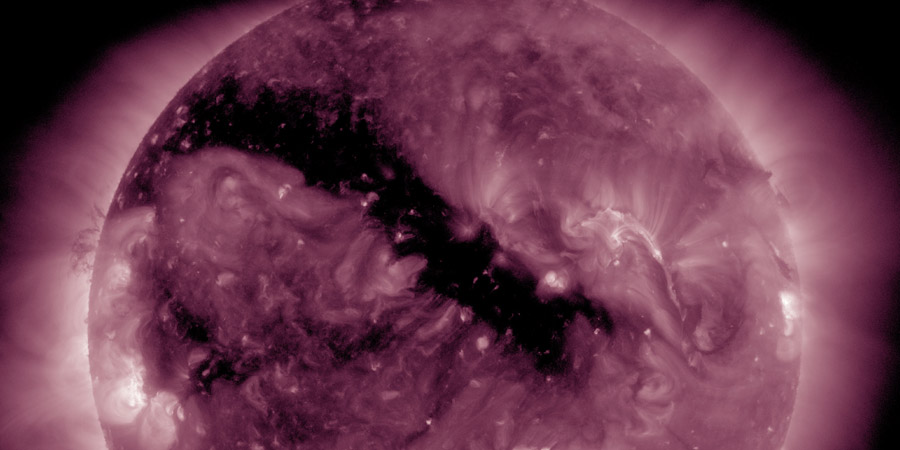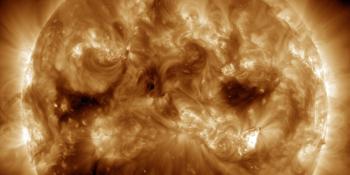Quiet Sun, Coronal hole faces Earth
Tuesday, 5 July 2016 21:17 UTC

Five B-class solar flares. That's the only solar activity the Sun managed to produce last week. We're only two years after solar maximum but the Sun has already gone very quiet as if it approaches solar minimum. Could this be a sign for the years to come? We hope not.
While we are in period with some very quiet space weather, we do have the occasional coronal hole that comes around to face Earth. Today we have such a coronal hole facing Earth and it could spark some high latitude aurora (for those that aren't troubled by the midnight sun) in about two to three days from now when the solar wind stream is expected to arrive at our planet. Active geomagnetic conditions (Kp4) are likely to occur this coming Thursday or Friday and there is a slight chance for minor G1 geomagnetic storm conditions.
A coronal hole is facing Earth. Enhanced solar wind could arrive in ~3 days - Follow live on https://t.co/T1Jkf6i4Cb pic.twitter.com/FI4lQd07lr
— SpaceWeatherLive (@_SpaceWeather_) 5 juli 2016
Thank you for reading this article! Did you have any trouble with the technical terms used in this article? Our help section is the place to be where you can find in-depth articles, a FAQ and a list with common abbreviations. Still puzzled? Just post on our forum where we will help you the best we can!
Latest news
Latest forum messages
Support SpaceWeatherLive.com!
A lot of people come to SpaceWeatherLive to follow the Sun's activity or if there is aurora to be seen, but with more traffic comes higher server costs. Consider a donation if you enjoy SpaceWeatherLive so we can keep the website online!

Space weather facts
| Last X-flare | 2025/03/28 | X1.1 |
| Last M-flare | 2025/04/01 | M2.5 |
| Last geomagnetic storm | 2025/03/27 | Kp5 (G1) |
| Spotless days | |
|---|---|
| Last spotless day | 2022/06/08 |
| Monthly mean Sunspot Number | |
|---|---|
| February 2025 | 154.6 +17.6 |
| April 2025 | 147 -7.6 |
| Last 30 days | 128.8 -21.8 |


